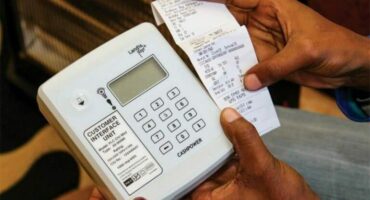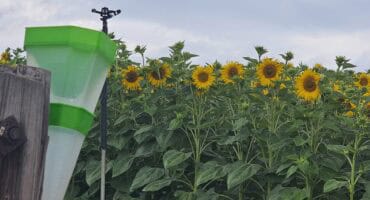Waste water treatment: Improvement, but poor housekeeping still a major challenge for Ngwathe
But despite the challenges Ngwathe faces with wastewater treatment, Ngwathe’s executive mayor, Ms Victoria de Beer, emphasised that much had already been done to improve the functioning of the wastewater treatment plant in Parys.


The Ngwathe Municipality has no wastewater use licence, no wastewater risk abatement plan or bylaws to regulate the abattoirs. In addition, the digesters need urgent attention to store the primary sludge properly. The laboratory, while adequate, is unused. There is too few staff to remove dried sludge from the drying beds and other daily duties at the plant. The plant also needs to be properly fenced. These challenges all add up to poor housekeeping.
This was also reflected in the Department of Water Affairs’ Green Drop Progress Report overview, where Ngwathe Local Municipality achieved an overall Green Drop Score of only 10 per cent. All five waste- water treatment systems (Edenville, Parys, Vredefort, Heilbron and Koppies) achieved a score of less than 30 per cent.
The report found the municipality needs to improve across various areas of wastewater management. The shortcomings include the lack of maintenance and operation of civil, electrical and mechanical components and proper relevant plans. The availability of qualified maintenance personnel, quality monitoring and chlorination of the final effluent released back into the environment, and the implementation of bylaws are also mentioned. Appointing trained and skilled process controllers and improving management’s commitment are noted too.
In 2013, Ngwathe had a Green Drop score of only 16 per cent and 45 per cent for 2011. Performance rating across the Free State province is poor. The Dihlabeng Municipality has the best overall score in the Free State, with 49,9 per cent.
When looking at Ngwathe’s wastewater critical risk rating (CRR), the Parys wastewater treatment works scored 95,5 per cent, with all other Ngwathe towns scoring risk ratings above 90 per cent.
Green Drop is an incentive-based regulation as an innovative and uniquely SA response to challenges in the water sector, said Dr Gerhard Jansen van Rensburg, deputy director in Water Service Regulations. He was speaking at a stakeholder’s engagement and capacity-building task team meeting of the Blue Deal Project on Monday.
He explained that the programme seeks to induce changes in the behaviour of individuals and institutions to facilitate continuous improvement and adoption of best practice management of wastewater networks and treatment systems.

But despite the challenges Ngwathe faces with wastewater treatment, Ngwathe’s executive mayor, Ms Victoria de Beer, emphasised that much had already been done to improve the functioning of the wastewater treatment plant in Parys. She added that a visible improvement could already be seen. De Beer said Ngwathe had spent about R200,000 to fix a backup generator, due to a faulty electrical cable. She said the plant was now operating effectively, preventing sewer spillage, especially during load shedding.
The mayor said one of the biggest problems within the municipality was that such achievements were not communicated to the public.

Mr M. Pali, Ngwathe’s manager of sanitation, elaborated, saying the pump rotating element at the river pump station was fixed, a motor at Tambo Pump Station was replaced and an electrical panel rewired.
The Sandgat manhole was replaced and repairs were done at the Tokoloho pump station.
Pali said the river pump station is now guarded around the clock to prevent the huge losses through theft and vandalism.
He pleaded with management to get Ngwathe’s wastewater use licence in order within a reasonable time frame and address the directive for non-compliance from the Department of Water Affairs. Penalty scores for poor performance could arise where wastewater treatment works are found to be operating beyond hydraulic design capacity or if any sewer collector pump station’s dysfunctionality causes long-term spillage.







